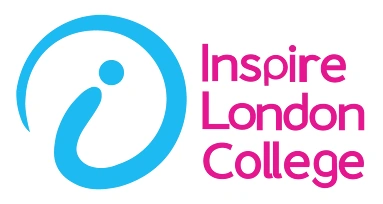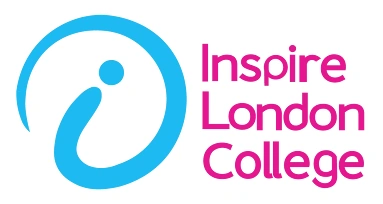In today’s fast-paced world, both individuals and organisations are constantly looking for ways to grow, improve performance, and stay competitive. Coaching and mentoring are two of the best strategies to promote both professional and personal growth. These powerful techniques help people find their true potential, overcome challenges, and achieve their goals. In this blog, we’ll explore what is the impact of coaching and mentoring in detail.
What is Coaching?
Coaching is a structured and goal-orientated process. It is usually short-term and focuses on performance improvement. A coach works with an individual to help them identify goals, improve specific skills, and develop strategies to overcome obstacles. It’s not essential for a coach to be an expert in the individual’s field; however, asking insightful questions, offering constructive feedback, and encouraging self-reflection can help them support growth.
Coaching is often focused on specific areas, such as:
- Leadership development
- Time management
- Communication skills
- Confidence building
- Achieving career goals
What is Mentoring?
Mentoring is a longer-term process where a more experienced person, the mentor, offers guidance, knowledge, and advice to a less experienced individual. Mentoring is often informal and focuses on overall development rather than specific performance issues. A mentor usually has experience in the same field as the mentee and shares real world insights, lessons, and support. Mentoring is often focused on:
- Career development
- Personal growth
- Industry knowledge sharing
- Building networks
- Learning from past experiences
Mentoring vs. Coaching: How Do They Differ?
Both mentoring and coaching involve assisting individuals to achieve success and overcome work challenges.
Coaching is usually a short-term, structured process that focuses on specific goals and performance improvements. A coach helps individuals develop targeted skills, often through guided questioning and feedback, without necessarily being an expert in the individual’s field. On the other hand, mentoring is a longer-term, more informal connection that emphasises overall development and career growth. A mentor typically has experience in the same industry or role and offers guidance, advice, and knowledge based on their own journey.
While coaching is often results-driven and time-bound, mentoring tends to be more developmental, focusing on broader learning and support over time. Both approaches are valuable, but they serve different purposes depending on the individual’s needs.
What is the Impact of Coaching and Mentoring?
The impact of coaching and mentoring can be significant, both for individuals and organisations:
Improve Self-Awareness
One of the greatest benefits of both coaching and mentoring is the improvement in self-awareness. This means understanding yourself better, knowing your strengths, weaknesses, values, and what motivates you. Coaches and mentors ask thoughtful questions and encourage you to reflect on your thoughts and actions. As a result, you start to see things more clearly and make better decisions. This also helps you build stronger relationships, improve your confidence, and increase your emotional intelligence.
Rapid Skill Development
Coaching and mentoring help people learn new skills more quickly than learning on their own. A coach works closely with a person to improve specific abilities, such as communication, leadership, time management, or technical skills. Coaches use targeted methods and give regular feedback, which helps learners grow faster and with more confidence.
Mentors also play a big role by sharing their own experiences. They give useful advice, tools, and real-life examples that helped them in their careers. This helps mentees avoid common mistakes and learn smarter ways of handling situations.
Improve Employees’ Loyalty and Motivation
Coaching and mentoring play a powerful role in increasing employees’ engagement and retention in the workplace. When employees feel supported, guided, and valued by their organisation, they become more motivated to do their best. Knowing that the company is investing in their personal and professional development builds a sense of trust and belonging. This not only boosts their confidence but also strengthens their commitment to the organisation.
For companies, the benefits are clear. Coaching and mentoring can lead to lower staff turnover, as employees are less likely to leave when they feel appreciated and have growth opportunities. Job satisfaction improves because team members feel heard and supported.
Stronger Leadership Development
Coaching and mentoring are powerful tools that help shape future leaders. They provide guidance, support, and real-life knowledge that help individuals grow into confident and effective leaders. Individuals learn how to make better decisions, think more strategically, and take responsibility for their actions through regular coaching. Mentoring also helps improve emotional intelligence, which is the ability to understand and manage emotions.
Coaching and mentoring build leadership qualities like trust, communication, and vision skills that are essential for success in any team or organisation.
Boost Confidence and Motivation
Coaching and mentoring play a powerful role in building a person’s confidence and motivation. Individuals begin to believe more in their own abilities through regular encouragement, positive support, and helpful feedback. Mentors and coaches guide them to step outside of their comfort zones and try new things without fear of failure. This supportive relationship helps people take on new challenges, set bigger goals, and stay motivated even during tough times.
Improve Communication and Relationships
Both coaching and mentoring improve communication skills by encouraging active listening, asking open-ended questions, and giving and receiving feedback. These skills help individuals express themselves clearly and understand others better. This leads to stronger workplace relationships, better teamwork, and a more positive and supportive work environment. When communication is open and respectful, people feel more comfortable sharing ideas and solving problems together, which helps the entire team succeed.
Increase Productivity and Performance
Another benefit of coaching and mentoring is the enhanced productivity and overall performance. Through coaching, individuals learn how to manage their time better, solve problems more effectively, and work more efficiently. It helps people stay focused on their goals, build confidence, and handle tasks with a clear mind. Mentoring, on the other hand, provides long-term guidance. A mentor can help someone stay motivated, avoid burnout, and maintain a healthy work-life balance. It gives employees a sense of direction and support, which increases their commitment and job satisfaction.
Conclusion
Coaching and mentoring have a significant impact on personal and professional success. They build confidence, enhance skills, improve careers, and strengthen organisations. Whether you’re at the start of your career, looking to improve your leadership skills, or trying to build a supportive work culture, coaching and mentoring can help you reach all of your goals.









